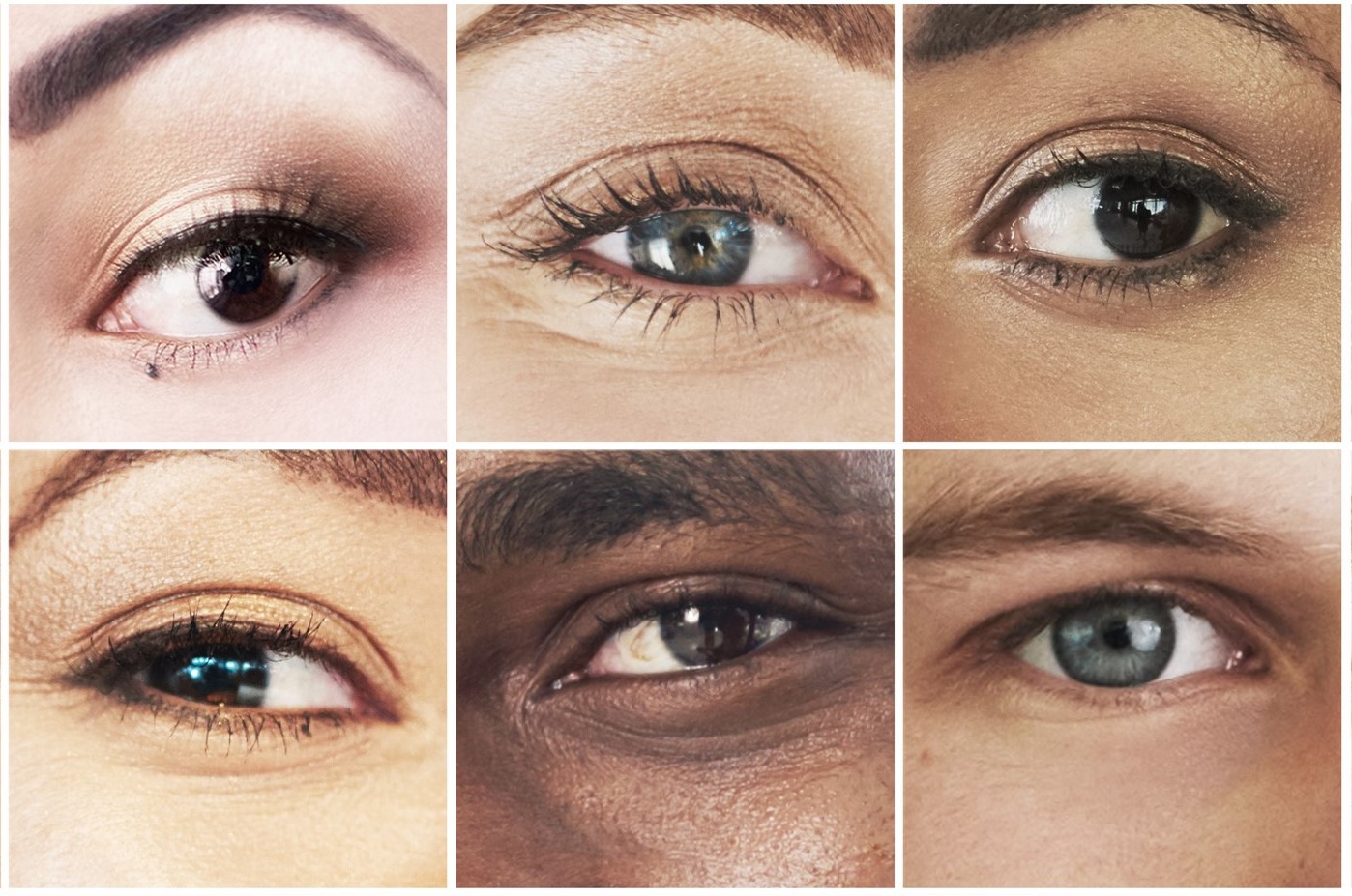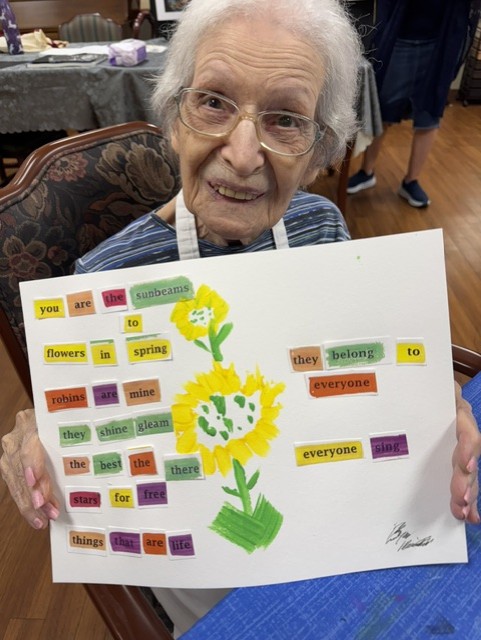I have blue eyes and, with a little help from my hairdresser, blond hair. My husband John has brown eyes and a little bit of grayish brown hair on the sides. Like many families, we have a variety of hair and eye colors represented in our clan, although hair color can change on a dime depending on mood and inclination. Our 9-year-old granddaughter Isabell chose to add red highlights to her hair this Christmas.
Unlike many families, we also have a variety of skin colors represented. My skin is white, except when I burn and it turns a vibrant and painful shade of pink. My husband John’s skin is white. Our children Tim & Lizzy have brown skin, and my parents have white skin. My extended family also represents a variety of skin colors. My brother-in-law’s skin color is black. My two grandchildren, and one nephew’s skin color is brown. My brother, sister-in-law, one nephew and both my children’s partner’s skin color is white. I love the beautiful rainbow that is my family!
But many of these people who are so dear to me live within a challenging reality: the emotionally charged significance of skin color.
Six Words on Race
Michele Norris, journalist and columnist for The Washington Post wrote an intriguing column titled “Our True Feelings About Race and Identity Are revealed in Six Words.” She writes about the Race Card Project which she pioneered 13 years ago where she made postcards that read: “Race. Your thoughts. 6 words. Please send.” She then left them wherever she happened to be: Starbucks, the writing desks of hotels, information kiosks in airports. She hoped to have a few of the postcards returned, but she wasn’t sure how many people would be willing to share their thoughts on such a difficult subject with a complete stranger.
She needn’t have worried. Since 2010, she has heard from 500,000 people. It seems that people have plenty of things to say about race, even if they must do so in only six words.
How interesting that I jumped so quickly from the topic of skin color to the topic of race, even though the theme of this blog is color, not race. Historian Carolyn Purnell, Ph.D., writes, “Today, skin color is understood as a common marker of race. But that hasn’t always been the case. In fact, the compound word ‘skin color’ didn’t even appear until the eighteenth century…” Since its appearance, the concept of skin color has evolved into so much more than a description of a physical attribute.
The stress of living as a Black or brown person in this country is well documented. “Just being in this society, as a Black person or a Brown person means the recognition that you are potentially at risk for some sort of negative encounter,” Parker Dominguez Clinical Professor of Social Work at the University of Southern California says, “whether it’s with the police or elsewhere. Your level of threat perception in the environment is higher.”
No Abstract Idea
Even though I am a white woman, the added stress of living as a person of color in this country is no abstract idea to me. My brown son and daughter, my black brother-in-law, my brown grandchildren and my brown nephew live daily with this added stress. There is always extra worry in the back of my mind for their safety and well-being simply because of their skin color. When my children Tim and Lizzy were growing up, my white privilege could protect them to some extent. Now that they are adults and living their own lives, it no longer can.
Although I described my family members’ skin colors as simply brown, black and white, that is grossly inaccurate. Their skin colors run the gamut from white sand to sun-bleached to nomadic desert to clove (all colors from the Sherwin-Williams palette of paint colors). Believe it or not, people get hung up and discriminate not only on skin color but also on the specific tone (a fact that makes me sigh in frustration at the lengths we go to categorize and marginalize one another). As far as my own family is concerned (except when writing blogs such as this), I give very little thought to each person’s skin color, eye color, hair color, height, weight or other physical characteristics. Mostly, I think of how fiercely I love each and every one of them.
Looking Through Eyes of Love
Like it or not, skin color plays an enormous role in all aspects of our lives, not only in the United States but around the world. But, I have to wonder how God views our preoccupation with skin color. What does God see when looking at us? Does God see the color of our skin? What significance does God place on it?
Of course, I can’t answer those questions specifically. But I can say without any doubt that God sees each and every one of us through the eyes of love. Looking at someone through the eyes of love changes everything. A few years ago, my daughter Lizzy shared with me that when she was young, she thought I looked like the beautiful actress Catherine Zeta-Jones. As it happens, I do not look anything like Ms. Zeta-Jones, at least not when you compare our photos. Lizzy was looking not through a camera lens, but through the eyes of love.
Whether God notices physical attributes like skin color is really neither here nor there, because God is absolutely besotted with us. God adores every single molecule of us completely and utterly. Nothing regarding our appearance gets in the way of God seeing us through the eyes of love. As priest and author Henri Nouwen writes in his book Spiritual Direction, “You are God’s Beloved! I hope that you can hear these words as spoken to you with all the tenderness and force that love can hold. My only desire is to make these words reverberate in every corner of your being – YOU are the Beloved!”
For Reflection (either individually or with a group)
Read the blog. Read it a second time, maybe reading it aloud or asking someone else to read it aloud so you can hear it with different intonation and emphases. Invite the Divine to open your heart to allow the light of new understanding to pierce the shadows of embedded assumptions, stereotypes, and ways of thinking so that you may live more abundantly. Then spend some time with the following questions together with anything or anyone who helps you reflect more deeply.
- What would be your six words on race?
- Be honest, do you feel you respond to people differently based on their skin color? Maybe it isn’t skin color, maybe it’s a person’s age, an accent, the clothes being worn, the vocabulary used, or something else? Why do you think that has an impact on how you respond to someone?
- Do you think there may be a purpose in God’s creation of so much human diversity?
Download a pdf including the Reflection Questions to share and discuss with friends, family, or members of your faith community small group.
Courtesy of the Parker Center for Abundant Aging, promoting the riches of Abundant Aging; advocating for an inclusive society that conquers ageism; and delivering education and resources to transform how we think about elderhood.
Blog: Copyright 2024, Lisa Thomas, All Rights Reserved. Photo designed by Freepik.
View all articles by:






















